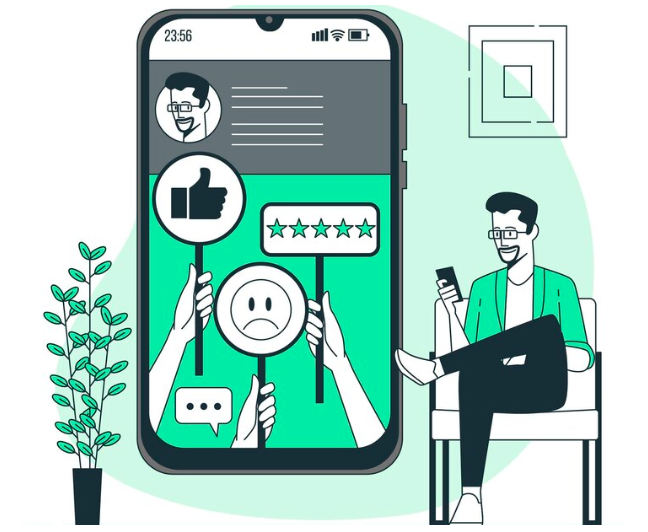Many businesses believe they have customer experience figured out, but how many truly build long-term loyalty? Are your customer interactions delivering experiences that keep customers returning, or are you unknowingly losing them with poor service, long response times, or a lack of personalization? A great product or service alone will not cut it.
A great Customer experience goes beyond how customers feel when interacting with your brand. It encompasses every touchpoint, from the initial impression to post-purchase support.
This article will explore what an excellent customer experience means and how your business can leverage it to boost customer retention, loyalty, and revenue.
What is a great customer experience?
Great customer experience (CX) is the art of creating meaningful and positive interactions at every touchpoint a customer has with your brand. It’s about fulfilling basic expectations and going above and beyond to make customers feel valued, understood, and genuinely appreciated. A truly outstanding customer experience leaves a lasting impact. It fosters strong emotional connections with customers, resulting in trust and long-term loyalty. A great customer experience turns satisfied customers into brand advocates, encouraging repeat business and positive word-of-mouth. It is the key to standing out in a crowded marketplace and ensuring sustained growth.
The business benefits of a great customer experience
A great customer experience (CX) brings numerous benefits to a business, enhancing its growth and reputation. Here are the key advantages of providing an exceptional customer experience:
- Customer retention: Providing a positive customer experience fosters trust and satisfaction, thereby increasing the likelihood of repeat business. Customers who feel valued are less inclined to switch to competitors, fostering stronger, long-term relationships and ensuring customer loyalty.
- Brand advocacy: Customers who have positive experiences with your brand are more likely to share their satisfaction with others. Word-of-mouth recommendations, online reviews, and social media endorsements from happy customers are powerful tools for attracting new customers, all at no additional cost.
- Increased revenue: A well-executed customer experience strategy encourages customers to spend more and return for future purchases. Satisfied customers tend to have a higher lifetime value, are more open to upsells and cross-sells, and contribute to overall business growth through repeat sales.
- Competitive advantage: A company’s customer experience often sets it apart in a crowded marketplace. By offering seamless interactions, personalized services, and effective problem resolution, businesses can differentiate themselves from competitors, making them the preferred choice for customers.
- Improved crisis management: When customers have a positive experience, they are more likely to remain loyal even during times of crisis. A business that has built a strong relationship through an excellent customer experience can manage crises more effectively, as customers are more forgiving and understanding during difficult situations.
- Increased customer lifetime value: An exceptional customer experience leads to stronger customer relationships, which in turn translate into a higher lifetime value. As customers remain loyal, make repeat purchases, and recommend your business to others, their overall value to the business increases over time. The longer customers stay, the more revenue they generate, making customer experience (CX) a crucial strategy for long-term financial success.
- Employee retention: Great customer experience is not just for customers; it benefits employees as well. When businesses prioritize customer experience, employees often feel more motivated and engaged as they see the positive impact of their work.
How to consistently deliver an outstanding customer experience
Here is how your business can consistently provide an exceptional customer experience:
1. Have a clear customer experience plan:
A great customer experience does not happen by chance; it requires a well-defined plan. From mapping out the customer journey to setting clear CX goals and metrics, businesses need a roadmap that guides their efforts. This plan should outline all stages of customer interaction, from the initial point of contact to post-purchase follow-up. It is not enough for management to be aware of this plan alone. Every team member, from front-line employees to leadership, should be familiar with the customer experience strategy and understand their role in delivering it.
2. Understand your customers’ needs:
The foundation of a great customer experience (CX) is understanding what your customers truly want. Conducting surveys, analyzing feedback, and using data helps identify pain points and expectations. Segmenting customers based on age or behavior allows for more tailored interactions. Recognizing the different preferences of customer groups, such as younger customers who prefer fast, tech-driven interactions and older customers who appreciate personalized service, helps optimize offerings to serve your audience better.
3. Personalize every interaction:
Customers dislike generic interactions. Personalization makes them feel valued. Using customer data to offer tailored product recommendations, sending personalized emails or SMS messages, and addressing customers by name contribute to a better experience. AI-driven tools and CRM systems automate personalization at scale, ensuring businesses engage customers with the right message at the right time.
4. Deliver a seamless omnichannel experience:
Customers expect a smooth experience across multiple platforms, whether they reach out through phone, email, social media, or live chat. A unified communication platform ensures all touchpoints are connected. If a customer starts a conversation via email but switches to WhatsApp, the conversation history should carry over to avoid repetition. Quick and consistent responses across all channels reduce frustration and enhance customer satisfaction.
5. Maintain consistency across all touchpoints:
Consistency builds trust. Customers should receive the same level of service regardless of when or how they interact with your business. Inconsistencies, such as different answers from agents or varying service quality, frustrate customers and erode credibility. Standardizing processes and training employees to follow best practices ensures a consistent level of service. Utilizing CX platforms helps maintain consistent messaging and support, thereby strengthening customer loyalty.
6. Train employees using your vision:
Employees are the heart of the customer experience. A well-trained team can turn an ordinary interaction into an exceptional one. Businesses should align their employees with the company’s vision and values to ensure that everyone understands the importance of delivering a great customer experience. Teaching skills such as active listening, problem-solving, and empathy equips staff to meet customer needs effectively and create lasting, positive impressions.
7. Treat employees well and encourage feedback:
How you treat employees is as important as how they treat customers. A positive work culture motivates employees to extend warmth to customers. Empower your team to make customer-focused decisions, resulting in faster resolutions and increased customer satisfaction. Foster open communication and actively seek feedback from employees. When they feel heard, they are more engaged, which translates into better customer service.
8. Leverage technology and data:
Technology enhances the customer experience (CX) by improving efficiency and personalization. CRM systems track customer interactions, while AI chatbots reduce wait times by automating common inquiries. While automation speeds up processes, human interaction is essential for addressing complex issues. A balanced approach, where AI improves efficiency and human support provides empathy, ensures a positive customer experience.
9. Gather and act on customer feedback:
Listening to customers is essential for continuous improvement. Collect feedback through surveys, social media, and online reviews to identify areas that need attention. Act on feedback to demonstrate to customers that their opinions matter, thereby fostering trust and loyalty. However, not all feedback requires immediate change. Acting on customer feedback demonstrates a commitment to excellence.
10. Offer self-service options:
Many customers prefer self-service options that allow them to resolve issues independently. A well-structured knowledge base, FAQs, video tutorials, and AI-powered chatbots can answer common queries instantly. Self-service tools enhance customer satisfaction and reduce the workload on support teams. To foster convenience and loyalty, ensure that these resources are easy to navigate, regularly updated, and accessible across various devices.
Reaping the benefits of a great customer experience
Delivering a great customer experience begins with understanding your customers, empowering your team, and using the right tools. It’s about listening, adapting, and continually improving every aspect of your service. While many businesses believe they provide excellent service, a gap often exists between their intentions and the customer’s perception.
To close that gap, businesses must focus on personalized, seamless, efficient interactions at every touchpoint. Businesses can turn their customers into passionate advocates by building stronger relationships and fostering loyalty. Consistently refining your approach will ensure your brand remains memorable, trusted, and preferred.
So, ask yourself: Does your business truly deliver the exceptional service your customers expect and deserve?





